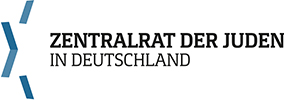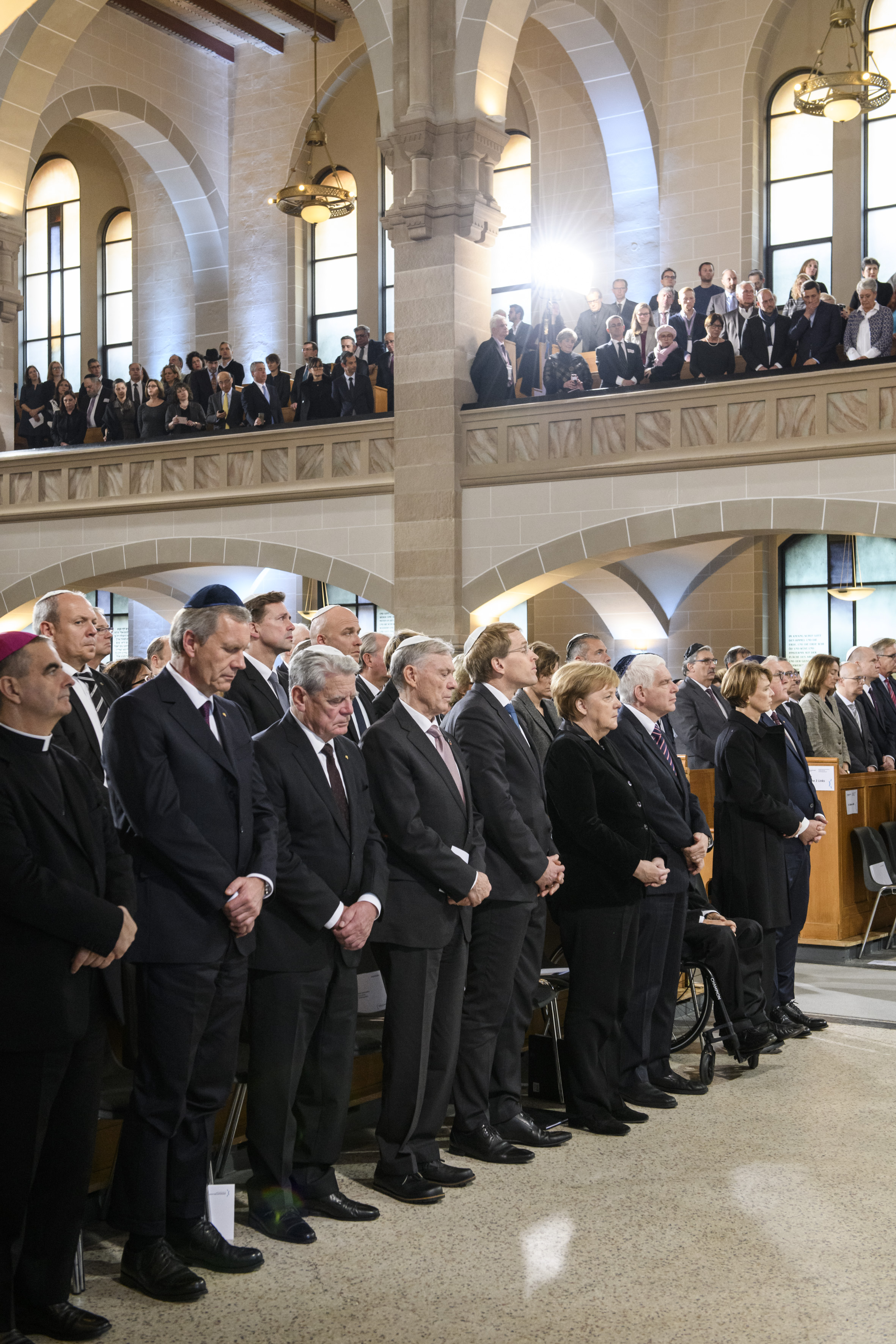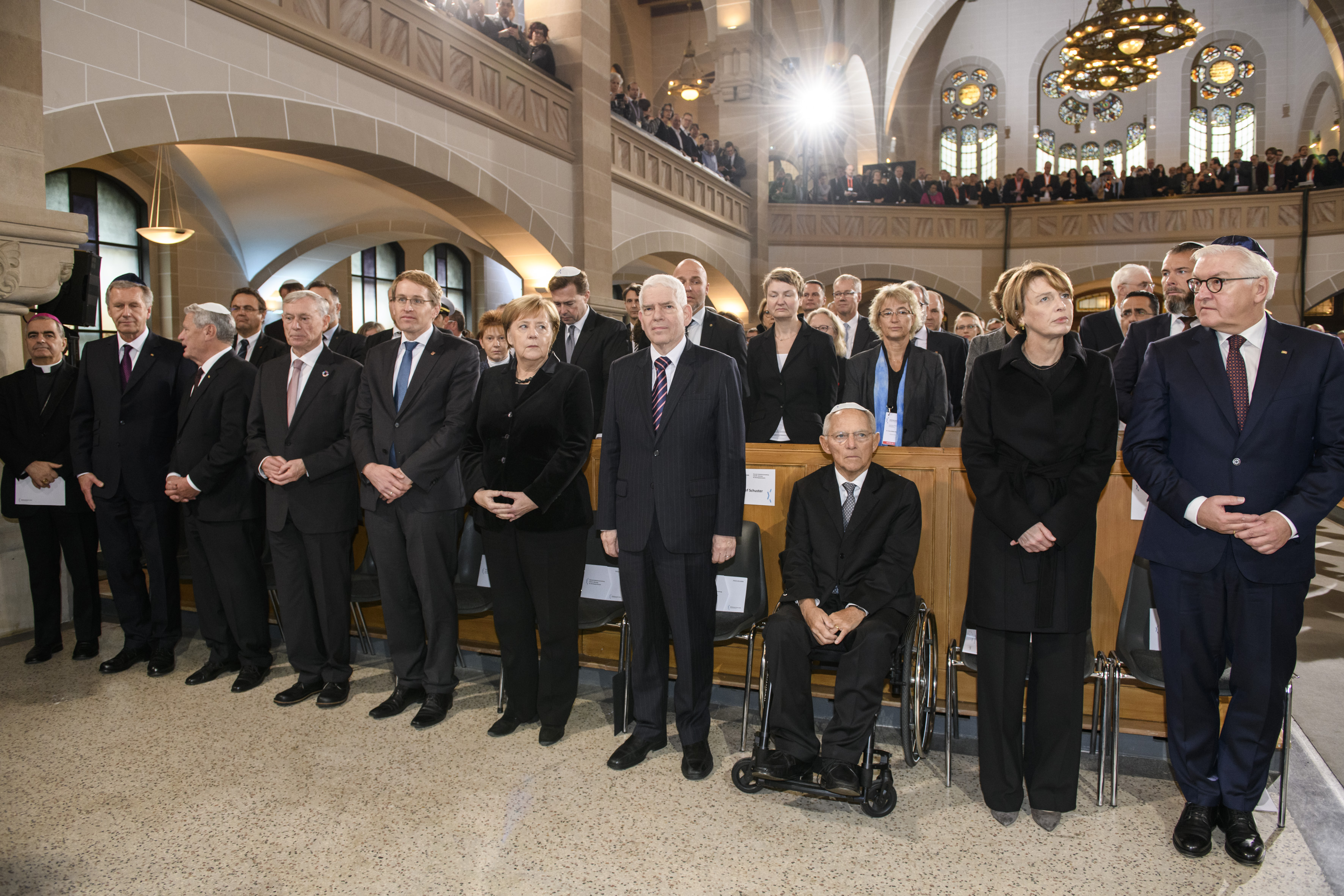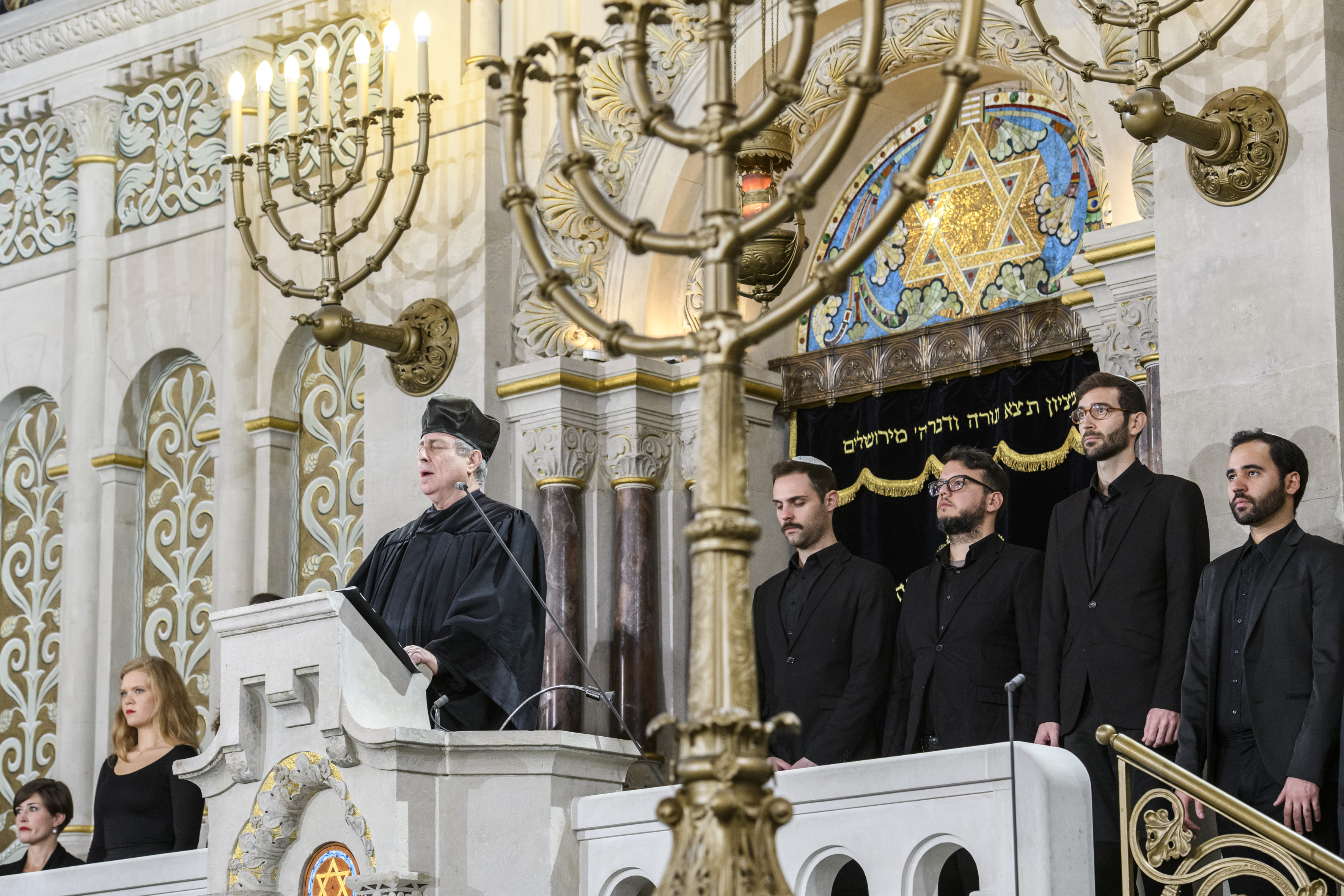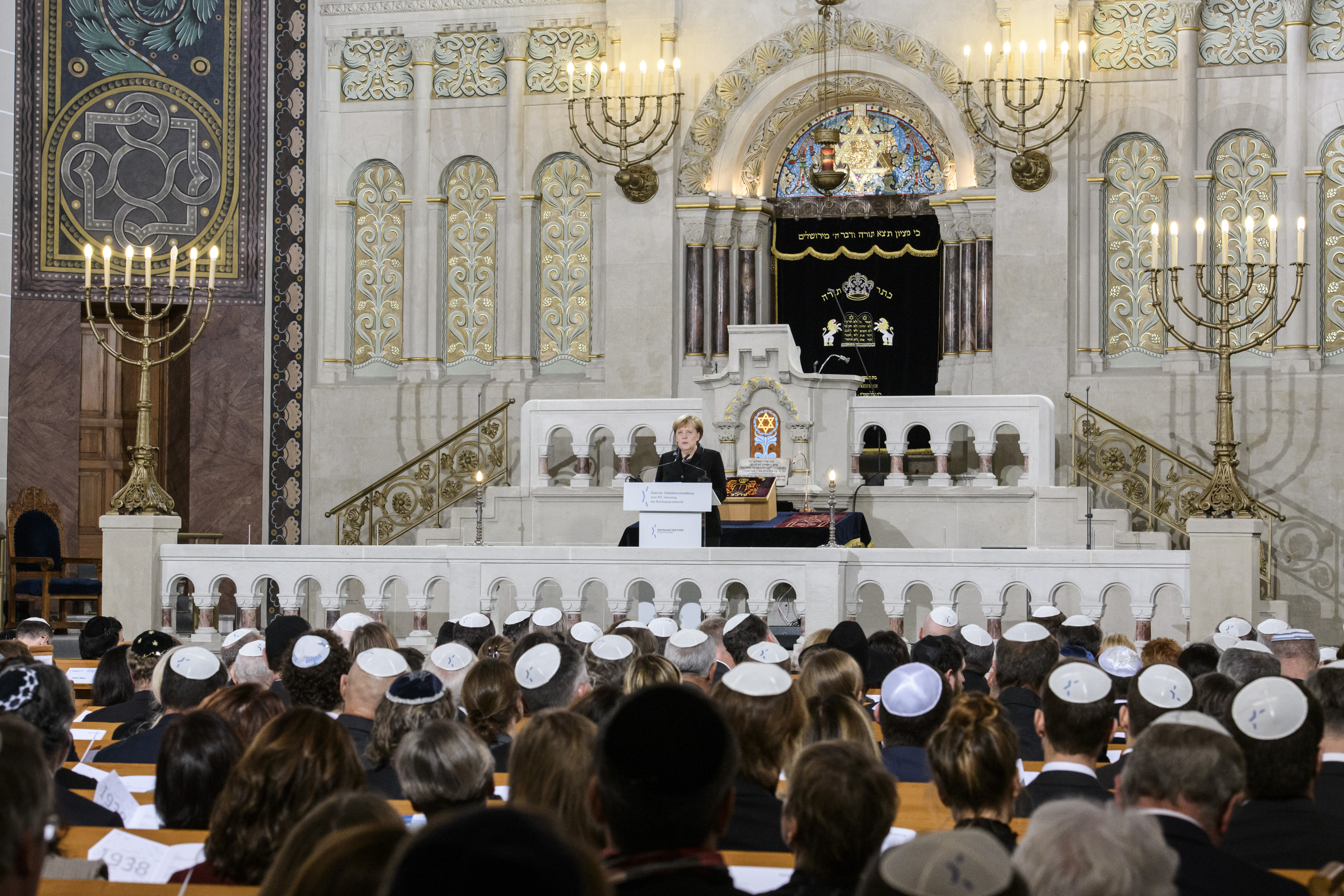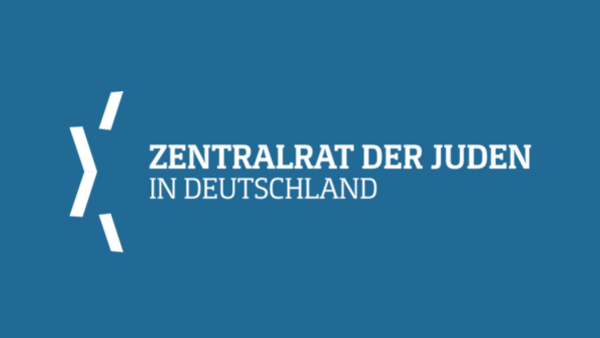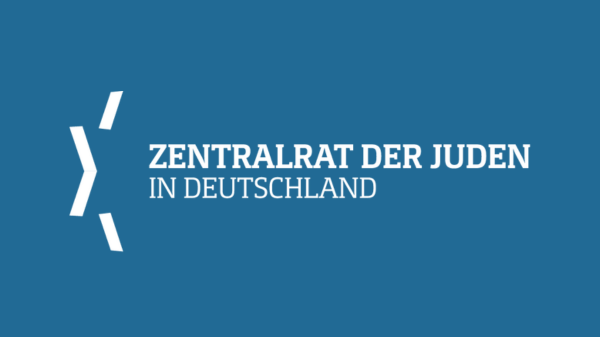Speech by Dr Josef Schuster, President of the Central Council of Jews in Germany,
at the ceremony marking the 80th anniversary of Reichspogromnacht
Check against delivery!
Ladies and gentlemen,
it was the middle of the night when the manhole cover flew through the synagogue window. Glass shattered. The next morning, the leader of the congregation was shaken. “It is terrifying to see what force anger and hatred can create,” she said.
The manhole cover which hit the synagogue in Gelsenkirchen was not thrown in 1938.
It was 2014.
It is wrong to draw parallels.
Yet when we remember the state-led rioting against Jews in November 1938 80 years ago, we are doing so not just in awareness of the worst crime against humanity in history and focusing on the lessons that we have drawn from it. We are also doing so in the knowledge that injustice is happening to this day.
Things are still happening which bring back horrendous memories.
Such incidents particularly traumatise one group of people, namely the survivors of the Shoah and their descendants who are deeply horrified when they hear such news.
Today, on this day of remembrance, we bow down before the survivors, whether they are here with us today or elsewhere.
And we bow our heads in grief and perpetual remembrance of the six million murdered Jewish women, men and children and all victims of National Socialist crimes.
Even though one day we will have no-one left who themselves witnessed this delirium of destruction, we will never let the flame of remembrance go out.
Ladies and gentlemen,
the targeted, state-led violence against Jews, Jewish businesses and synagogues in November 1938 can be viewed as a staging post on the road to implement the radical National Socialist ideology, indeed to consummate this ideology in horrific fashion.
The night now known as Reichspogromnacht did not come from nowhere. The process to exclude Jews from German and, from 12 March 1938, also from Austrian society had long since been given a legal basis. Upon taking power in 1933, the National Socialist government began laying the legal foundation for excluding Jews from society. In 1935, this process of exclusion reached an initial perverse culmination in the Nuremberg race laws.
And in 1938 alone, countless other steps followed. Jewish citizens, for example, had to register their assets. In May, so-called “Degenerate Art” was seized including that of Jewish artists by dint of their being Jewish. In the euphemistically named June Action, countless Jews were arrested due to minor offences and deported to concentration camps. In July, all Jewish doctors lost their license. And soon afterwards, Jews were forced to use Sara or Israel as middle names - the first visible marking of Jews before the yellow star was introduced in 1941.
You can see just how difficult life became for the Jews in the exhibition “1938 Projekt - Posts from the past”. We are presenting parts of this exhibition created by the Leo Baeck Institute today. They are compelling accounts which say so much more than mere numbers.
Late in the evening of 9 November 1938, the violence erupted: SA and SS officers attacked synagogues and Jewish businesses. They attacked thousands of unsuspecting Jews in their homes. All in all, some 1400 synagogues, half of the synagogues at the time, were damaged or destroyed.
Synagogues here in Berlin, also this one in Rykestrasse, were set alight on the night of 9 to 10 November. The fire was put out pretty quickly but only to protect neighbouring houses.
Some 30,000 Jews were deported to concentration camps. Approximately 1300 Jewish citizens were murdered or driven to suicide.
The brutal violence opened the eyes of many Jewish citizens. The blind destructive range, the violence which literally exploded ‑ previously they would not have thought the civilised German nation capable of such behaviour. Emigration figures shot up as a result, although new regulations made it extremely difficult to leave.
We now know from reliable sources that Reichspogromnacht was state-controlled. And even back then, most citizens realised that it had not been a spontaneous outpouring of rage, as Goebbels presented it, but that the SA and SS had been acting on orders.
There is one point I would like to make: even if on these days in November it was essentially only the SA and SS who were actively involved, we are still talking about thousands of Germans. The two organisations were so large that the pogrom could easily be launched simultaneously all across the German Reich and in Austria.
Many citizens clearly reacted by distancing themselves from what had happened, even with disgust. This is what most reports tell us. Yet, their reaction gave the Nazis valuable information: hardly anyone protested. There was no opposition to the SA and the SS. There were only isolated cases of harassed Jews receiving assistance. Hitler’s reign of terror and anti-Semitic propaganda had borne fruit. After 9 November 1938, the leadership could be sure that our citizens would not get in the way even if greater violence was used against Jews.
They were to be proven right.
There were only very few people who showed human decency and courage. Wilhelm Krützfeld was one of them. In the early hours of 10 November, the Berlin police officer stood with other officers from his beat blocking the path of the SA in front of the New Synagogue in Oranienburger Strasse. He prevented the exterior of the building being set alight and ensured that the fire which had been started inside was put out.
This example of the police officer Wilhelm Krützfeld leaves a deep impression to this day. Many will wonder if they would have had the same courage.
We can of course also ask ourselves this question today. After all, today too, we are dealing with arsonists.
With mental arsonists but also with real ones.
I want to use some statistics to make my point.
In 2016, there were almost 1000 attacks on refugee housing, more than 60 of these were cases of arson. More than 60 cases of arson. That is an average of five arson attacks a month on buildings providing housing for people who have sought refuge here.
In 2017, there were only 16 cases of arson. I tell you this quite deliberately. Sometimes it seems to me that I can hear a sigh of relief that the number of attacks on refugees and refugee housing has dropped significantly.
Yes, they have dropped. But that is no reason for complacency!
The very fact that some 300 refugees were injured in attacks in 2017 alone, that housing for asylum-seekers is a regular target for attacks - this is scandalous!
And it is also a scandal that more and more mosques are being daubed with slogans of hatred or subjected to even more serious attacks.
And it is a scandal the same thing happens to synagogues about every two weeks in Germany although they are protected by the police.
And you will all remember the Jewish restaurant-owner in Chemnitz who was recently and repeatedly attacked by neo-Nazis. Shortly after, in October, neo-Nazis targeted a Persian restaurant in Chemnitz seriously injuring the Iranian owner.
It is a disgrace for our country that such things are happening in Germany in 2018!
It is behind these people who attack refugees, Muslims or Jews, that we find the mental arsonists. My impression is that they are growing in number in Germany.
They are fuelling the fear of refugees. With their choice of words and disproportionate level of attention paid to individual incidents, they are inciting the people. They are inciting hatred against asylum-seekers and particularly against Muslims.
A party sitting on the far right in the Bundestag have perfected their skills in incitement. They are mental arsonists.
There is nothing they respect. They instrumentalise the courageous White Rose resistance movement for their own ends. They deride the victims and survivors of the Shoah by relativising National Socialist crimes. They are misrepresenting history and want to destroy our culture of remembrance.
It would have been unbearable for the Jewish community, today, 80 years after Pogromnacht, to have representatives of this party in our midst. That is why this was the only parliamentary group of the German Bundestag which we did not invite.
These forces must not be allowed to gain yet more ground. On the contrary. They must be pushed back so far that they are consigned to oblivion.
After all, to use the words of Karl Jaspers, there must be no freedom to destroy freedom.
It is up to us!
Each of us bears responsibility for ensuring that respect and tolerance define Germany’s profile.
What we need now are courageous and convinced democrats. We need people who show civil courage. People who speak out.
Civil courage starts in everyday situations. Each and every one of us can ask ourselves: do I speak out when people tell jokes about gays in the pub? Or if people speak disrespectfully about women? Or if people talk about the alleged influence of Jews from the American east coast?
Or am I afraid of being seen as a spoilsport or a stick-in-the-mud. Do I just try and fit in? Do I remain silent or do I chuckle along so as not to stand out from the crowd? Do I pretend not to hear if a coloured man is insulted in the train?
If we do not stand up for the values anchored in our Basic Law, for human dignity, when it comes to the small stuff, we cannot expect it to work on the big stuff.
As Richard von Weizsäcker put it in his famous speech marking the 40th anniversary of the end of the war, the Weimar Republic did not fail because there were too many Nazis too early, but because for too long there were too few democrats.
This is an accurate analysis and highlights precisely the difference between then and now.
Today there are enough democrats. There is no risk attached to standing up for basic rights. We need to remember, we are serving as a role model in the way we behave.
No child is born a racist.
No child is born an anti-Semite.
And yet the word “Jew” is used as an insult in school playgrounds.
That is why above all teachers need to be courageous and convinced democrats. Whether in sport, chemistry or religious education lessons ‑ anti-Semitism and racism are never acceptable. The context is immaterial. There can be no understanding for anti-Semitism and racism. There has to be a clear red line here.
The cultural scholars Aleida and Jan Assmann, who have just been awarded the Peace Prize of the German Book Trade, found wonderful words in their acceptance speech:
“There have to be undisputed convictions and a basic consensus such as the Constitution, the division of powers, the independence of the judiciary and human rights. Not every dissenting voice warrants respect.”
These convictions, this basis consensus do exist in Germany. Yet they are being called into question by the far right in a manner we have not seen for some time. That is why we need to defend this consensus.
In recent years, we have taken democracy and the rule of law for granted. Perhaps too much for granted.
Yet now we sense that democracy is not a matter of course. We have to do something for it. We have to be courageous. And we need to make both the coming generations and people from other cultures and political systems into convinced democrats.
And that is actually a wonderful task!
And if I think of the demonstrations we have seen in recent months whether under the hashtag “We are more”, “Welcome United”, “Indivisible” or “Heart not hassle”, then I sense that something is happening.
The citizens of Germany are taking to their feet. There is a sense of a new awakening.
Today, on this day so ambivalent for Germany, we are remembering above all Reichspogromnacht. But we do not want to forget the year 1989. On 9 November 1989, the Wall fell and Germany attained its unity in freedom. The country began its journey to shared democracy peacefully and without violence.
Today, the citizens are again taking to the streets together to campaign for human rights, against racism and anti-Semitism, in their hundreds and thousands. Hundreds and thousands of courageous and convinced democrats. They are not letting Germany simply drift to the right. They are fighting for the basic consensus. They make me confident about the future.
It is the dawn of a new era where Germany makes respect into one of its core values.
Ladies and gentlemen,
in the year 1938, a 12-year-old Jewish boy from Vienna uttered the following words:
“Mum, if we are really so awful and no other country wants to take us in, it is better to call it a day and turn on the gas-tap.”
Never again must we find ourselves in a situation where a human being, worse still, a child, experiences such desperation because of his background.
Thank you very much!
